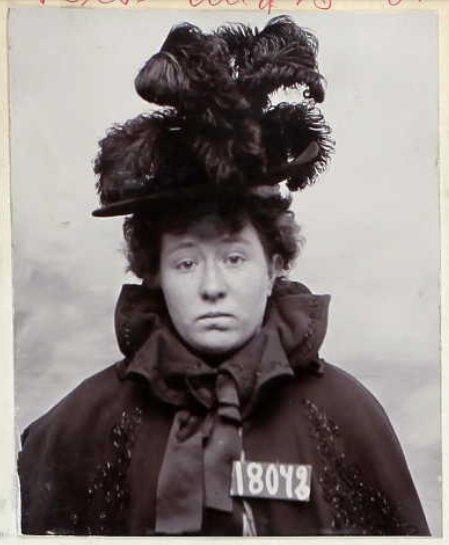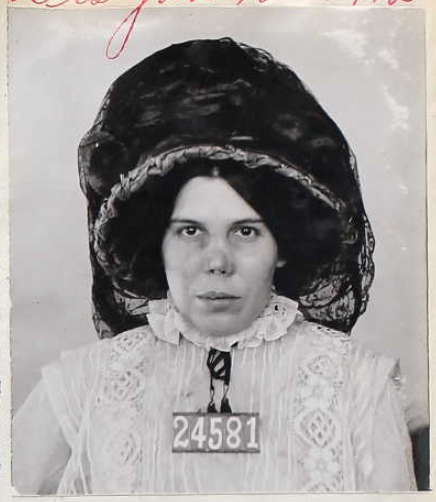Ok But One Thing I Love About Goncharov Is The Ironic Subversion Of Themes. Like We Have Katya, The Madonna-like
ok but one thing i love about goncharov is the ironic subversion of themes. like we have katya, the madonna-like character whose white palette screams of loyalty and purity, while andrey is the judas-like character whose motifs are the dagger and the poisoned cup.
but at the end, it’s katya who draws a gun on goncharov, and andrey who’s left holding his bleeding body in his arms. by having the “loyal wife” be the backstabber and the “doublecrosser” be the broken-hearted lover, scorsese subverts both biblical imagery and gender roles, and he does it in such a subtle and poetic way too, without taking away the complexity of either character.
More Posts from Springloadedcoffin and Others

Tintype of what appears to be a light-hearted spot of stabbing between friends, circa 1880


The Tampa Tribune, Florida, July 25, 1913
The saddest moments of Star Trek TOS belonged to "throwaway" characters
They all deserved better.
1. Lieutenant Riley - Conscience of the King
Faced with the chance to kill the man who once ordered the executions of thousands (including his family) in the wake of a famine, Riley's chance is stripped from him and he is ordered to stand down.


This is also a devastating moment for the captain himself as the only other remaining survivor of the colony. Kirk stops Riley's drastic actions, which, although damning, were perhaps his only chance of overcoming the guilt of having once been selected to live while others were sent to death.
Both enter a confrontation regarding their shared past, but neither heal.

2. Janice Rand - The Enemy Within
Although it was an "evil extension" of Kirk who perpetrated the assault on Janice Rand in her own room, at this point she only had reason to believe that the assailant was Kirk himself.
Rand is forced to testify with Kirk (the man she thought she loved, a captain with both power and position over her, an officer flanked by his two closest allies, and a man whose proximity in the same ship could endanger her after the testimony) standing over her. Rand even admits to "not wanting to get him into trouble", highlighting how closely her struggle mirrors the victims of everyday workplace violence against women.


What may even be worse are the blatant intimidation tactics Kirk employs throughout the scene. Although he knows he didn't do it (and perhaps suspects foul play), Kirk makes no attempt to empathize with the testimonies of Rand and Fisher regarding what they saw, and he even hints at the danger of them conspiring against a man of his rank.


Rand endured constant objectification in each of her appearances in the series, and would go on to be entirely forgotten after its first season. (Though she would return in The Motion Picture.)
3. Lieutenant "Joey" - The Naked Time
Joey delivered perhaps the most poignant monologue of the series, just moments before his impending death. Though Joey's inhibitions were altered by the infection that would soon kill him, we see later in the episode that the infection forces people express existing wants and needs. Therefore, real are his pleas begging to understand why humanity should be in space at all when it has merely taken and taken... leaving only destruction in its wake and its own to die.


Not only did he bare his own insecurities, Joey also established a central conflict of the entire series: can a utopian vision of the future include acts like leaving six people to waste away on an empty planet?
Tragically, Joey couldn't bear the burden of this conflict alone (no one else had or would mention this guilt at any point in the series) and though his death was prompted by the infection, it only acted as a catalyst for what was truly a su*c*de.
McCoy ruled in the autopsy that Joey might have survived, but he simply gave up fighting.



botany lore drop time w ur local biologist: burdock root is a medicinal plant with anti inflammatory and antibacterial properties. it’s family? asteraceae. order? asterales. clade? asterid.
suzanne i’m in ur fucking walls
Valid

dorian to basil: draw me like of your french boys









Female inmates of San Quentin State Prison and their very fine hats. 1/?.
-
 thefunnestclown liked this · 4 weeks ago
thefunnestclown liked this · 4 weeks ago -
 bleedinghearthypocrit liked this · 2 months ago
bleedinghearthypocrit liked this · 2 months ago -
 smilelikeawolf liked this · 2 months ago
smilelikeawolf liked this · 2 months ago -
 alicedyerappreciator liked this · 2 months ago
alicedyerappreciator liked this · 2 months ago -
 sofia-not-sophie reblogged this · 2 months ago
sofia-not-sophie reblogged this · 2 months ago -
 sofia-not-sophie liked this · 2 months ago
sofia-not-sophie liked this · 2 months ago -
 chocolate-mallowmelt reblogged this · 2 months ago
chocolate-mallowmelt reblogged this · 2 months ago -
 chocolate-mallowmelt liked this · 2 months ago
chocolate-mallowmelt liked this · 2 months ago -
 corinthian-history222 liked this · 3 months ago
corinthian-history222 liked this · 3 months ago -
 beacuzz-i-can reblogged this · 3 months ago
beacuzz-i-can reblogged this · 3 months ago -
 thefoolishpotato liked this · 3 months ago
thefoolishpotato liked this · 3 months ago -
 small-helm reblogged this · 3 months ago
small-helm reblogged this · 3 months ago -
 small-helm liked this · 3 months ago
small-helm liked this · 3 months ago -
 araccoonthatlikesmurder liked this · 3 months ago
araccoonthatlikesmurder liked this · 3 months ago -
 diddleydont reblogged this · 3 months ago
diddleydont reblogged this · 3 months ago -
 diddleydont liked this · 3 months ago
diddleydont liked this · 3 months ago -
 muddy-moss liked this · 3 months ago
muddy-moss liked this · 3 months ago -
 crestfallercanyon liked this · 5 months ago
crestfallercanyon liked this · 5 months ago -
 theseshipsistg reblogged this · 5 months ago
theseshipsistg reblogged this · 5 months ago -
 glitterinlowgravity reblogged this · 5 months ago
glitterinlowgravity reblogged this · 5 months ago -
 keeperofsecretsunderthehill liked this · 6 months ago
keeperofsecretsunderthehill liked this · 6 months ago -
 exoskeletoneatz liked this · 6 months ago
exoskeletoneatz liked this · 6 months ago -
 alargemultitudeofducks liked this · 6 months ago
alargemultitudeofducks liked this · 6 months ago -
 1shouldbedoinghomeworknow liked this · 6 months ago
1shouldbedoinghomeworknow liked this · 6 months ago -
 fruitygains liked this · 6 months ago
fruitygains liked this · 6 months ago -
 fictionalmenjusthitdifferent liked this · 6 months ago
fictionalmenjusthitdifferent liked this · 6 months ago -
 snow-that-is-in-colour-red liked this · 6 months ago
snow-that-is-in-colour-red liked this · 6 months ago -
 wandervr liked this · 6 months ago
wandervr liked this · 6 months ago -
 time-plus-night reblogged this · 6 months ago
time-plus-night reblogged this · 6 months ago -
 time-plus-night liked this · 6 months ago
time-plus-night liked this · 6 months ago -
 tinfoilmagician liked this · 6 months ago
tinfoilmagician liked this · 6 months ago -
 marluus reblogged this · 6 months ago
marluus reblogged this · 6 months ago -
 philipsrainyday liked this · 7 months ago
philipsrainyday liked this · 7 months ago -
 yellow-faerie liked this · 7 months ago
yellow-faerie liked this · 7 months ago -
 thecommonmold liked this · 7 months ago
thecommonmold liked this · 7 months ago -
 godtoaveryselectfew liked this · 7 months ago
godtoaveryselectfew liked this · 7 months ago -
 aight-griffin liked this · 7 months ago
aight-griffin liked this · 7 months ago -
 brontidetales liked this · 7 months ago
brontidetales liked this · 7 months ago -
 sourdoughsolo liked this · 8 months ago
sourdoughsolo liked this · 8 months ago -
 psyquescreamsback liked this · 8 months ago
psyquescreamsback liked this · 8 months ago -
 fanofeverythinginthetv reblogged this · 8 months ago
fanofeverythinginthetv reblogged this · 8 months ago -
 fanofeverythinginthetv liked this · 8 months ago
fanofeverythinginthetv liked this · 8 months ago -
 annoyingdelusioncreation liked this · 8 months ago
annoyingdelusioncreation liked this · 8 months ago -
 mx-heinous liked this · 9 months ago
mx-heinous liked this · 9 months ago -
 smallsinger5901 liked this · 9 months ago
smallsinger5901 liked this · 9 months ago
